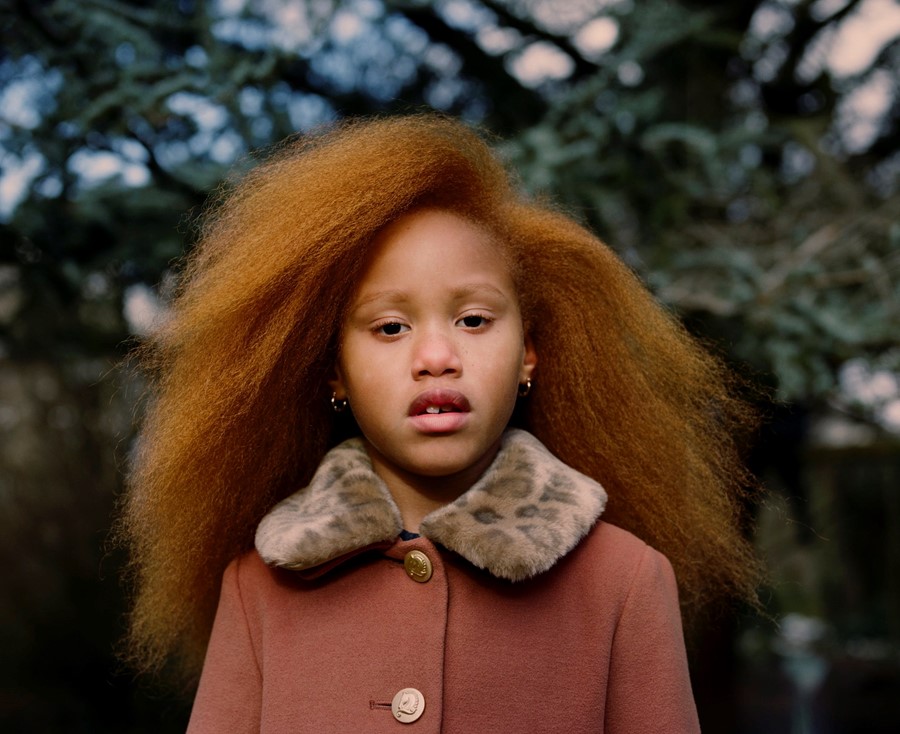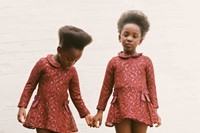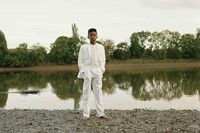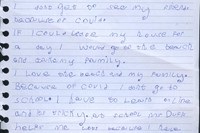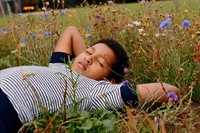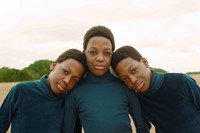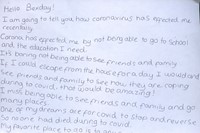In a new photography series, Bex Day explores the emotional, social and physical impact of Covid on young people
With the UK slowly crawling out from its third national Covid lockdown, the focus is now shifting to the fallout. Over the last 12 months, reality as we know it has been razed to the ground, with shops, schools and social spaces shutting their doors and – where possible – moving online. These changes have been difficult for everyone, but particularly children, who have been stuck in this digital, stimulus-starved existence for some of their most formative years. According to Unicef, Britain’s kids have lost up to 700 million days of school education since the pandemic began – so how will this affect them, both in the long and short term?
It’s a question that Bex Day has been musing over. Over the last few months, the London-based photographer has been documenting the daily lives of UK children as they adjust to the pandemic. The intimate project, titled Children of Covid, explores the emotional, social and physical impact of lockdown, particularly on those who are between four and 12 years old. Although photography-led, the series also includes text written either by the child or their family, detailing their feelings and experiences from the last 12 months.
It’s the second lockdown-themed project from Day, who last year turned the camera on herself for a strikingly personal photography series titled Seesaw. “I’ve been quite inspired,” she tells AnOther. “I think I owe that to the general slow down [of lockdown] which has allowed me to reflect, and enhanced my understanding of the direction in which I want my work to go.” Below, she talks more about the Children of Covid and the inspirations that lie behind it.
“This project started when my friend and her baby stayed with me for a while. Her two-year-old was delayed in learning to speak, so she’d started working with a speech therapist during the first lockdown. She thought this was because of the lack of interaction with other children and not going to nursery. I was very interested in exploring how other children had been affected by the pandemic and what they had to say on the matter.
“I’d also been focusing on working through a lot of childhood stuff in therapy so I think that’s why I also wanted to work with and photograph children. This project was a way of moving past that difficult time of my life and processing it effectively.
“The casting was key to the series so I spent a lot of time working on it. I found many of the children through street casting (it was actually thanks to Goo, my new puppy, that I was able to meet lots more kids in my day-to-day than usual). But I also found some through friends of friends and word of mouth, as well as through child modelling agencies. I’d never made a long term project with kids before: I loved their honesty and how you really had to work to keep their attention and focus on you. If you aren’t being interesting enough then off they go!
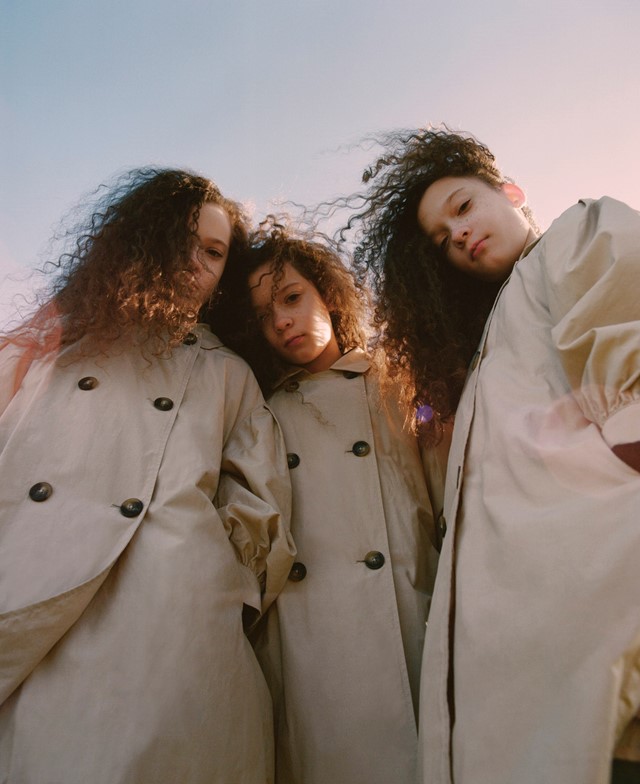
“When I started working on the project, the main similarity I noticed between all of the children was boredom, but also curiosity. Interestingly, a few of the children described having more time and becoming more curious about various things and essentially developing deeper interests, which I thought was so powerful. Another similarity was that they were scared of falling behind with their school work and missing their friends terribly – which is quite similar to adults, really.
“Some kids said Covid has changed their behaviour, making them more thoughtful and relaxed. Casper and Louis liked the fact that they no longer had to rush off to school, but could have a cup of tea in the morning while doing their online learning. Many of them were pining for their physical hobbies, such as gymnastics, swimming or dancing. There’s definitely been an increase in video game playing and irritability too. It was interesting to hear both the parents and children’s perspective.
“My biggest concerns are children falling behind and losing interest in education altogether, particularly due to the enhanced screen time – most of the kids hated online learning and found it so hard to keep their attention. I also hope that Covid hasn’t brought out mental health issues in too many kids, but from those who I encountered, I thankfully don’t think it has. I feel hopeful: I can only really speak from the children I spent time with for this project, but they are all so smart and really want to do well. Most have enjoyed the break from school!”
Styling: Bex Day and Adam Winder. Hair: Tommy Taylor. Special thanks to Fred Mungo, Lucy Howell, James Murphie, Pixie Models and Kids London.
